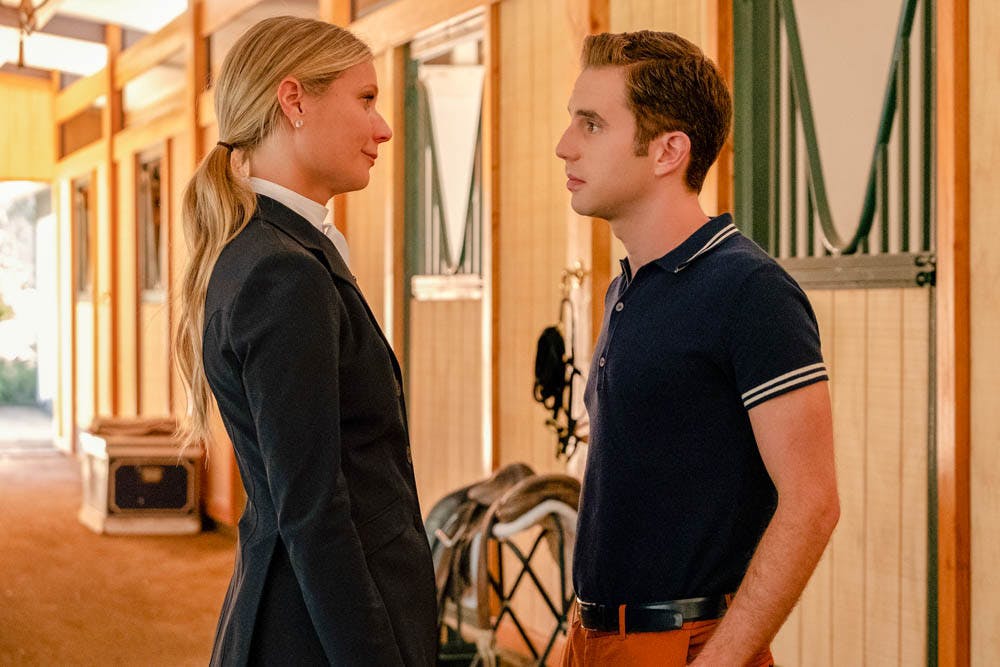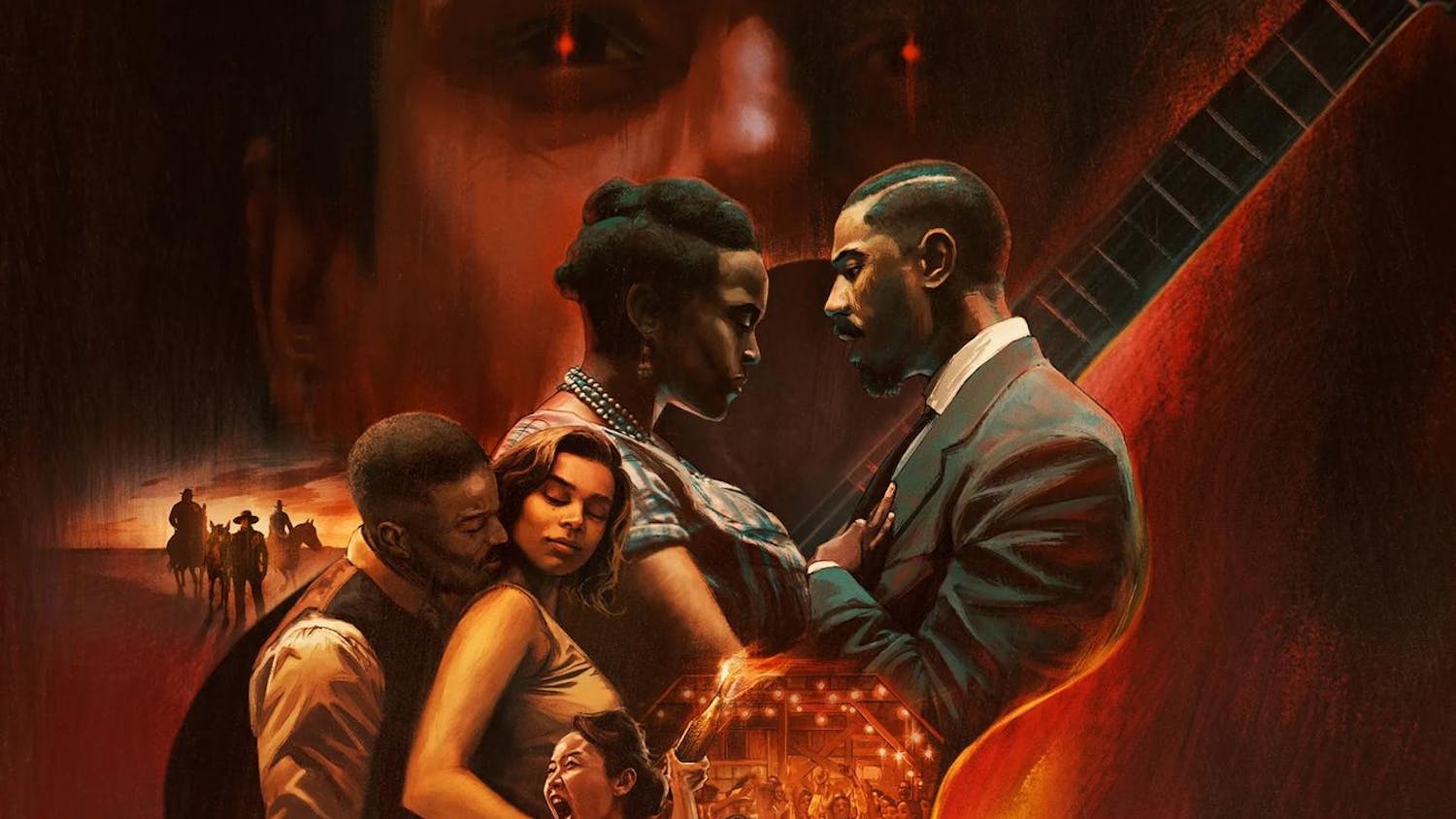Using cynicism splashed with bouts of humor, Ryan Murphy ambitiously takes on a swath of social issues in his newest project, “The Politician,” but this ambition ultimately leads to the show’s downfall.
The showrunner and screenwriter’s illustrious portfolio includes popular and award-winning shows like “American Horror Story,” “Glee” and “Pose.” Murphy’s latest eight-episode melodrama, which was released on Netflix in September, critiques privilege and the curation of public image with disillusioned satire, but the series’ conversations remain cursory and unripe.
Throughout the comedic drama, Murphy meditates on the concept of political performativity through main character Payton Hobart’s path to presidential election at his opulent high school in Santa Barbara, Calif. For example, after Payton’s opponent and old friend dies by suicide, Payton employs his death as a political prop, promising to heighten restrictions on gun sales and address mental health issues. But Payton never follows through with his promises, leaving the viewer unsure of his original motivations. Played by Ben Platt, Payton is defined by both himself and his peers as ambitious, calculated and callous — leaving the audience even more unsure about his character and what values the series instills.
Payton’s campaign is just one of many stepping stones in his meticulously crafted route to power, which he hopes will include admission to Harvard, and eventually, service as President of the United States.
In the pilot episode, Payton expresses fears of his own character flaws to his mother, Georgina, played by Gwyneth Paltrow: “I’m worried I don’t have the same feelings as everyone else does. … What if I can’t feel for anyone else? … What if all I’ll ever be able to do is pretend to feel?” Payton laments. Payton’s adoptive mother — somewhat a caricature of the faux-spiritual Goop-founder herself — assures Payton that having feelings doesn’t matter so long as the semblance of vulnerability is upheld. In positing insincerity as dignified, Georgina exemplifies the facade of empathy the series hides behind.
Sumptuous visuals of multi-million dollar Californian estates serve as the backdrop for the high school dramedy, which might otherwise recall a Murphy of “Glee.” Outside of the similar high school setting and a few musical numbers performed by Payton himself, palatial homes and the luxury wardrobes of the central characters reflect their vapidness, distancing “The Politician” from Murphy’s past successes.
Furthermore, while “The Politician” is rich with vibrant colors, luxurious textures and juicy syntax for immediate punchiness, the show is plagued by a sort of emptiness that is never quite filled.
For instance, as Georgina sits with Payton on the billowy sheets of his bed in the opening episode, framed by the ornate floral motifs of his tufted, satin headboard, she consoles her son in his inability to cry. “Your generation got the terrible idea that it was best to vomit every thought and feeling all over each other. It’s a pandemic of over-communication that’s led to an absence of intimacy,” she says. Georgina’s use of rich language against the even richer backdrop merely serves as a distraction from the lack of humanity in her words.
In episode three, “October Surprise,” Payton epitomizes this conniving superficiality in his negotiations with Harvard admissions officers. When his master plan is threatened by Harvard’s request for a sizeable family donation as a term of his acceptance, Payton’s immoderate view of self is exposed.
“I will be president someday. … Politics isn’t about policy — a candidate is elected on a story. … If you don’t accept me on my merit and merit alone, the story that I will tell is about how I was rejected from Harvard,” Payton warns with an air of entitlement and ignorance. For Payton, merit is merely part of the story he needs to tell to ensure the fulfillment of his plan. Whether he is actually admitted virtuously is not a concern as long as his narrative remains pristine.
“The Politician” is not the first modern media example of this privileged, self-indulgent void that exists to please an Ivy-League audience. In its depiction of characters who are ultimately defined by their elite college acceptances, Murphy’s series echoes Olivia Wilde’s filmic high school comedy “Booksmart” from earlier this year. Both fail to transcend these superficial, perspectiveless identity markers.
One cannot help but feel, then, that the multifarious sociopolitical matters tackled throughout the series seem to lack the depth that might be expected of such nuanced issues. In an attempt to be all-encompassing in its criticisms, “The Politician” merely scratches the surface of each vastly complex -ism, relying on social justice buzzwords and expensive sets to hastily quench the target viewership in just eight episodes. Most of the characters are left vacuous and underdeveloped, as their privilege dominates their personhood.
Though meritable for its digestibility and terseness, “The Politician” would achieve more simply by attempting less.





